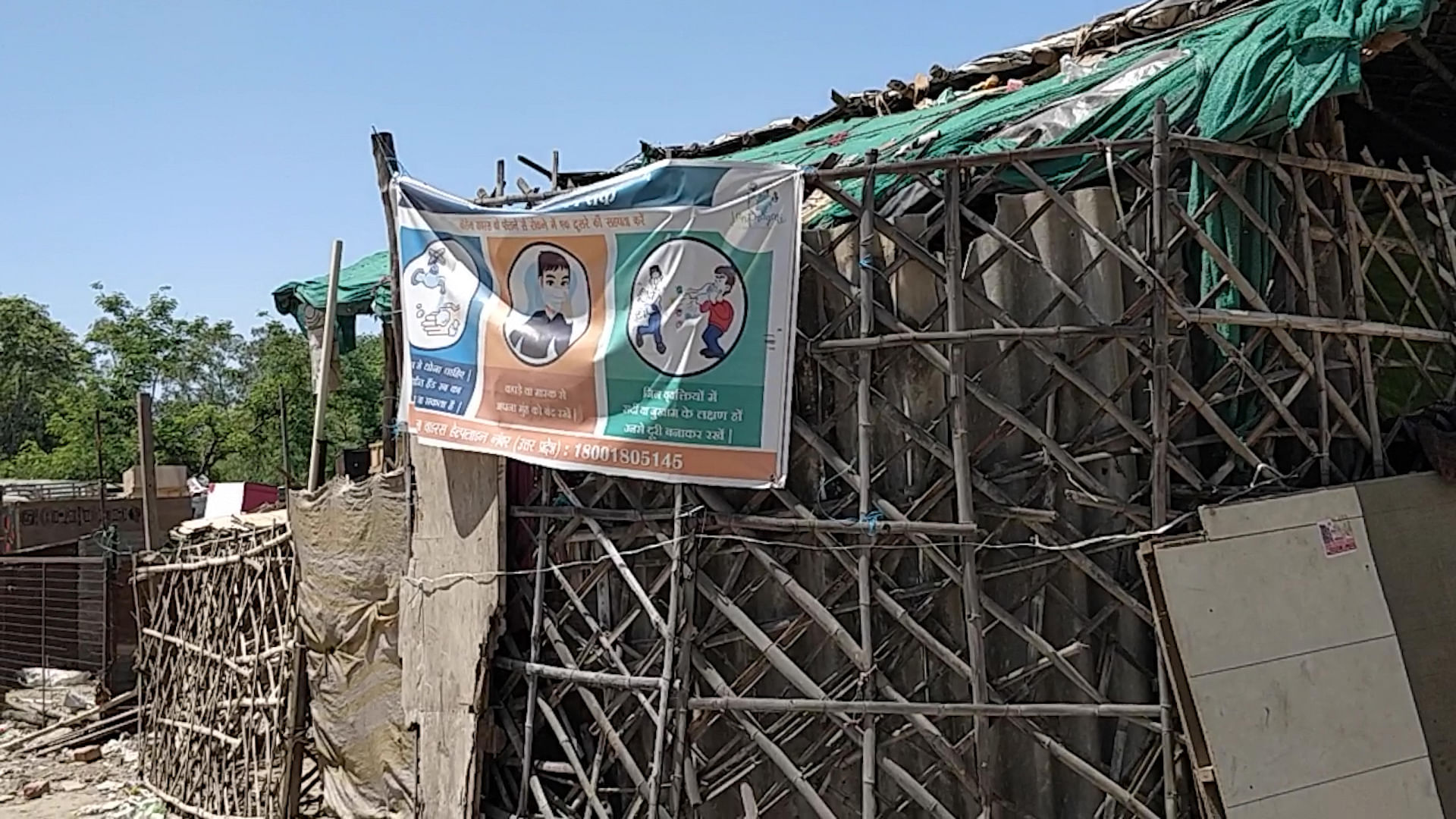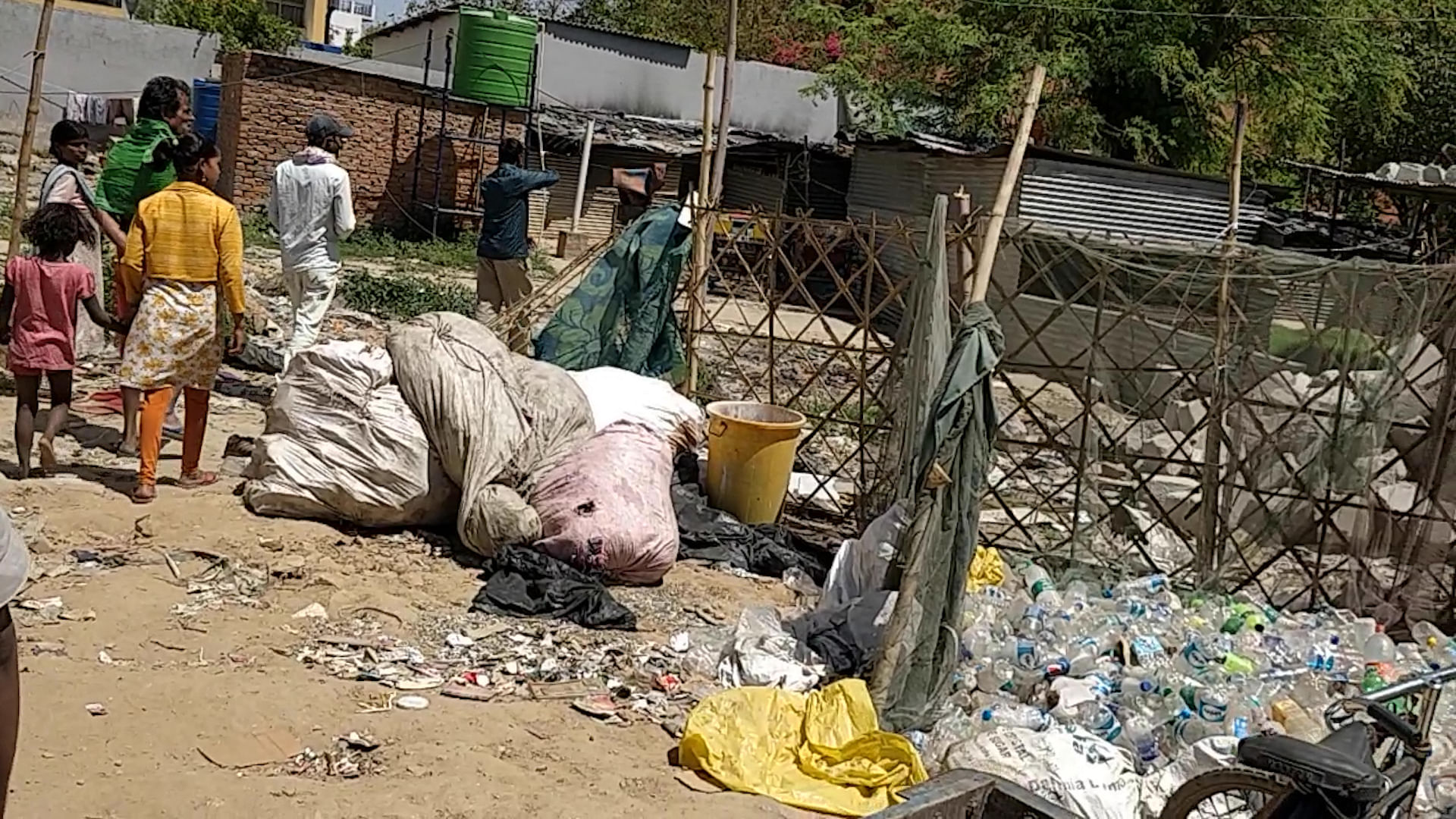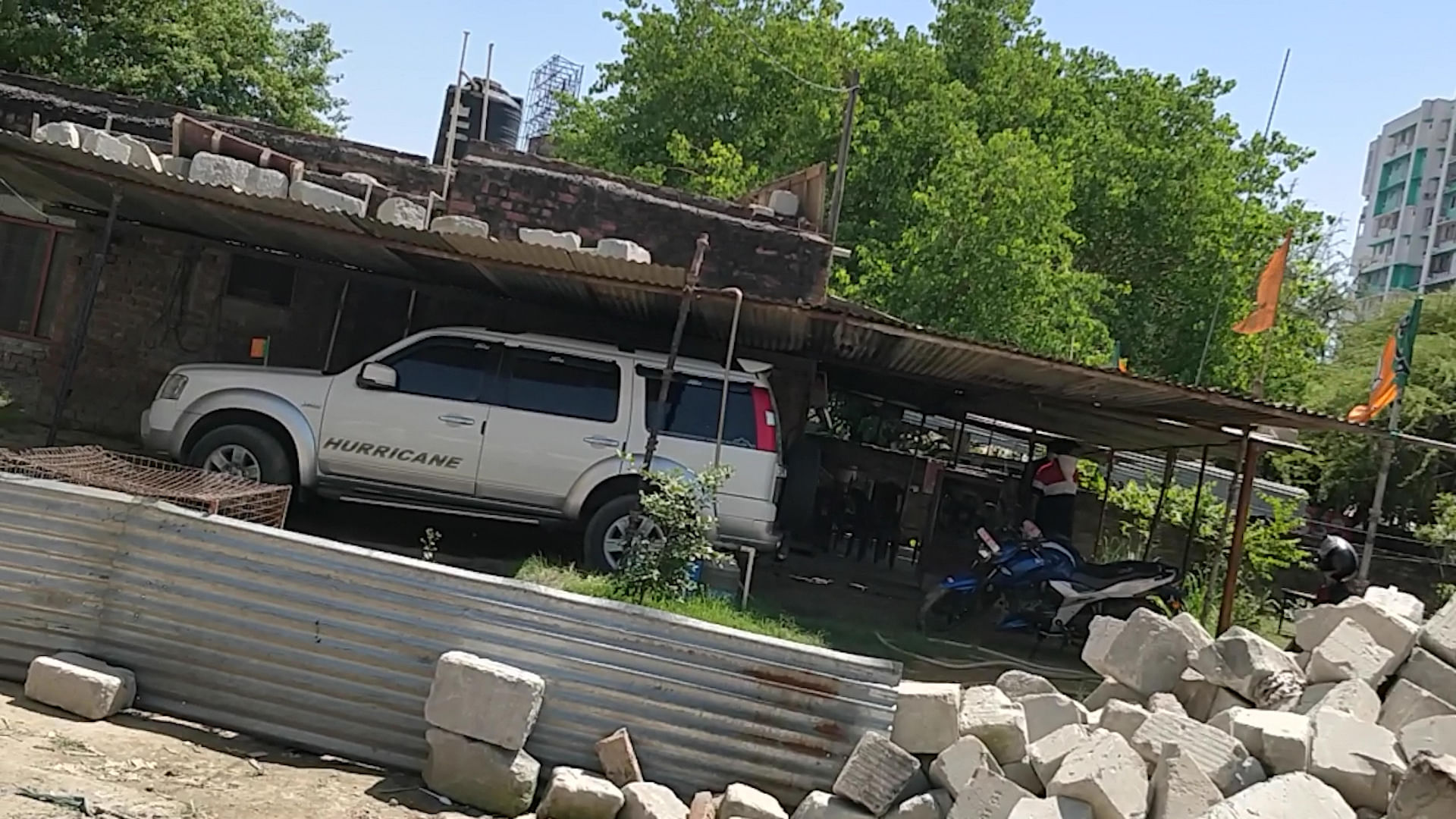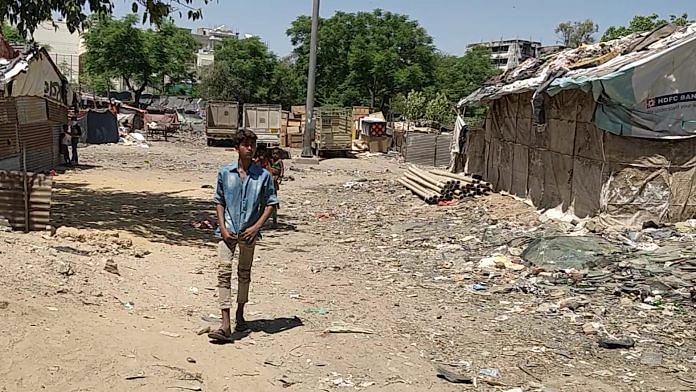Lucknow: Barely three kilometres from the Uttar Pradesh assembly building and a state minister’s official residence on Bahukhandi Mantri Awas in Lucknow, a barefooted Budhari Singh, 42, scours the road for any vehicle distributing food.
Singh, a daily wage labourer who doubles up as a rag-picker, has his face covered in a gamcha (a traditional cotton towel) not because he is adhering to Covid-19 guidelines but because he doesn’t want the police to identify him amid the stringent lockdown in the city.
“It’s been 2 days since we have had any proper food,” Singh says. “We are living on the few biscuit packets left with us. They will get over by tomorrow.
“We have to earn daily to eat but ever since the lockdown we have been at the mercy of people distributing food packets,” Singh adds. “In the initial days, there were a lot of people doing it but it has stopped for over a week now since the lockdown has become stringent.”
Budhari and his family of four — wife and three children — live at the Dalibagh Bahukhandi slum, which is home to over 1,000 people, all of whom are lodged in 142 houses made of thatched roof, wooden logs and tin shades.
The slum, the largest in Lucknow, hosts migrant labourers, mostly from Chhattisgarh and Assam. The majority of those who reside here work either as daily wagers, sanitary workers or are ragpickers.
Also read: ‘Solely dependent on ration’ but Lucknow’s poor yet to get the promised free grains, pulses
No water or electricity
The government presence at Dalibagh Bahukhandi is limited to just two entities — none of which ease the hardship that the residents of the slum are facing during the lockdown.
There is a light tower with multiple halogen lights retrofitted on it but the wires providing it power are all detached. A lone poster on one of the homes has details of the do’s and don’ts to prevent the spread of the coronavirus. Residents say a few Asha workers came one day, put up the posters and left.

As such, there is no electricity or potable water connection in the slum. Residents have to often manage by fetching water from nearby handpumps.
“I have a family of five,” says Farhat Ali, a 32-year-old sanitary worker from Assam. “Before the lockdown, we would use the public convenience for our daily use but now it’s a challenge. Police often chase us away even when we try to go outside for drinking water.”
Others say that the lockdown has had another debilitating effect — children going hungry as the only government school they attend is shut.
“Earlier, when the children went to the government school, they got one meal there. But now arranging meals for them is like an added burden,” says Pramila Devi, 39, a ragpicker and mother of four who hails from Bilaspur in Chhattisgarh.
Lucknow District Magistrate Abhishek Prakash told ThePrint that the administration has been providing food to the residents.
“In the initial days of the lockdown, people were allowed to distribute food across the street but this created concerns of social distancing violation across the city so the administration urged people to contribute their aid to community kitchens launched by CM,” he said.
“Thereafter the food is packed by the Lucknow Municipal Corporation workers in disposable tiffin boxes, which are distributed to the poor, including the daily wage workers, slum dwellers and rickshaw pullers.”
“Our food truck goes at least twice in the day to distribute food there but sometimes, it gets over quickly. Also, handpumps have been installed in the area and mapping is being done to provide potable water supply there,” he added.
Also read: A war room, drones, CCTVs — how ‘hotspot’ Agra became Covid-19 model town
Heaps of garbage, little sanitation amid pandemic
In the middle of the coronavirus crisis, there is little awareness about the pandemic here. There is heaps of trash everywhere.

Pramila Devi, the mother of four, attributes it to their professions. “Most of the people living here work as ragpickers and all the items collected are here in heaps. We are not able to sell them due to the lockdown,” she says.
The residents say they have far more pressing concerns. All of the households have to pay a monthly rent of between Rs 1,000 and Rs 1,500 to the owner of a house located at the centre of the slum.
The residents were tight-lipped about the owner of the house while ThePrint couldn’t ascertain who it was as the house was locked on the day we visited.
The house, however, is the only pucca home in the slum, fitted with a window AC and had a Toyota Fortuner parked outside. Its boundary walls had posters that read: “Sanjeet Patel, BJP, former president of the student union of Chaudhary Charan Singh University Meerut”.
The number plate on the parked Toyota Fortuner also bore the same name and designation.

Hunger, deprivation leads to tension between communities
The lack of food has led to tension between the two communities that live in the slum — one that hails from Assam and the other from Chhattisgarh.
The homes along the road are occupied by those from Assam while those from Chhattisgarh live further inside.
“The Assamese people live in front of the slum and took away most of the food that was provided by the authorities in the initial days,” alleged Lakshman Kumar Sahu, who is from Bilaspur. “They also snatch food from our women and children. This will not be tolerated for long as we cannot die from hunger.”
Mohammad Shamsuddin, 37, a ragpicker from Jorhat in Assam, blamed the tension on the lack of resources.
“We used to live peacefully here but these days everyone is hungry so children and women do get into fights with each other,” he said. “Everyone wants food for their family so much of the stock gets exhausted soon.”
Sub-inspector Pramod Singh, the chowki in-charge of Dalibagh, told ThePrint that the administration stopped its efforts as the residents refused to follow social distancing norms.
“These people don’t follow social distancing measures despite repeated attempts to help them with food and other aid. Hence, we have stopped all the efforts,” Singh said.
“Earlier people use to arrive here to provide them with food packets but with the stricter implementation of the lockdown, it has stopped.”
Also read: 20 men, 1 bucket and a Dettol soap cut in two — life in quarantine for UP migrant labourers




Kindly note, the title for the second picture ‘The government poster highlighting precautions for Covid-19’ is incorrect. It is a poster which was put up by us ‘JanPragati’ – an NGO. You can clearly see our logo on the top right side of the poster. We have been running a school for the children and women of this slum for some years now. We have been working in the slums of Lucknow for the past 9 years. Find more about us at http://www.janpragati.org or through our FB page http://www.facebook.com/janpragati
Help us fight COVID in the slums.
A harsh, uncaring, at times cruel and oppressive, administration. Ordinary people can expect nothing except a grand temple, kissing the azure skies above Ayodhya.